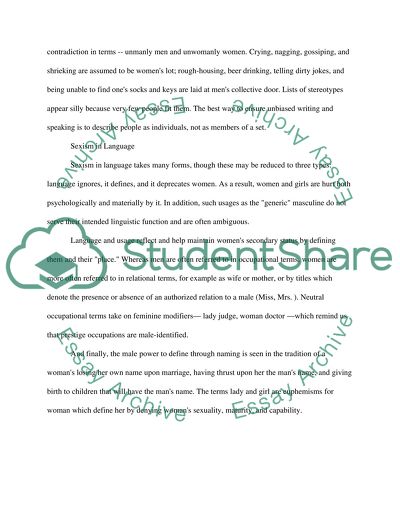Cite this document
(“Sexist Language Essay Example | Topics and Well Written Essays - 1500 words”, n.d.)
Sexist Language Essay Example | Topics and Well Written Essays - 1500 words. Retrieved from https://studentshare.org/sociology/1531283-sexist-language
Sexist Language Essay Example | Topics and Well Written Essays - 1500 words. Retrieved from https://studentshare.org/sociology/1531283-sexist-language
(Sexist Language Essay Example | Topics and Well Written Essays - 1500 Words)
Sexist Language Essay Example | Topics and Well Written Essays - 1500 Words. https://studentshare.org/sociology/1531283-sexist-language.
Sexist Language Essay Example | Topics and Well Written Essays - 1500 Words. https://studentshare.org/sociology/1531283-sexist-language.
“Sexist Language Essay Example | Topics and Well Written Essays - 1500 Words”, n.d. https://studentshare.org/sociology/1531283-sexist-language.


